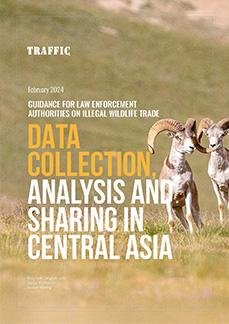Guidance for Law Enforcement Authorities On Illegal Wild Species Trade: Data Collection, Analysis and Sharing in Central Asia
By Bakytbek Tokubek uulu, Sanjar Kurmanov, Louisa Musing
Law enforcement agencies in Kazakhstan, Kyrgyzstan, Tajikistan, and Uzbekistan can greatly benefit from systematically collecting, analysing, and sharing data with neighbouring countries on illegal wild species traders, networks, and trade routes. By doing so, these agencies can effectively bring these criminals to justice.
The report comprises four main parts: Guidance on Illegal Wild species Trade Data Collection, Guidance on Illegal Wild species Trade Data Analysis, Guidance on Illegal Wild species Trade Data Sharing, and Training and Capacity Building Resources to Support Law Enforcement Agencies Tackling the Illegal Wild species Trade.
The Guidance also includes examples of best practices from other countries, including European Union Member States. Additionally, the report references existing resources such as the ICCWC Wild species and Forest Crime Analytic Toolkit and consolidates various tools and resources from initiatives like CITES, the World Customs Organisation (WCO), and the United Nations Office on Drugs and Crime (UNODC) websites.
The report acts as a guidance tool, urging law enforcement agencies to adopt best practices in combating illegal wild species trade. By understanding the intricacies of this criminal activity and leveraging data-driven approaches, agencies can significantly enhance their effectiveness in tackling this global issue.
Cambridge, UK: TRAFFIC, 2024. 36p.


